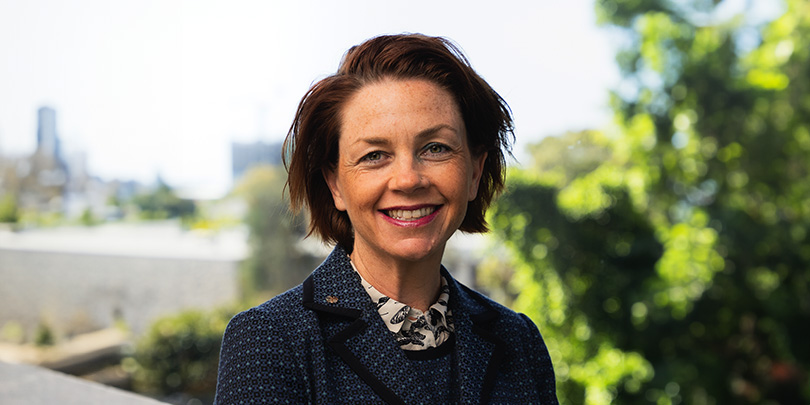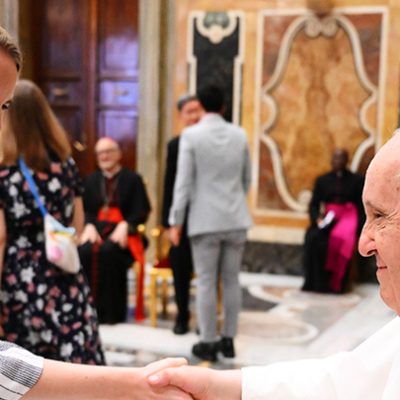
How did you get into the humanitarian aid and development sector?
I started my career in aid and development at Caritas Australia. Over the years, I have worked at Anglican Board of Mission, forceten (now Act for Peace), as a consultant to the sector and I also spent five years as Chief Executive Officer of Mary MacKillop Today.
I started working in programs – a role where you work with local partners to decide what programming will address issues in the community. It means being close to some of the world’s most vulnerable communities as you help them implement their own solutions. I have also worked in communications and held board and advisory roles. That breadth of experience across disciplines and organisations is a real asset.
How does your work connect with your personal values and faith?
At Caritas Australia, we are guided by Catholic social teaching principles such as preferential options for the poor and subsidiarity. Our ultimate vision is one of enabling justice, dignity, and hope for all of God’s creations.
As a Catholic myself, I am motivated by this faith-led approach to tackling big issues like poverty, injustice, and inequality. I am especially passionate about improving outcomes for women and girls around the world. I believe wholeheartedly in our responsibility to provide support and compassion so that all women can thrive and reach their full potential.
What do you find the most challenging about working in aid and development?
For myself, and I think for many others in the sector, my work is a core part of my identity, my beliefs, and my values. When there is so much need in the world, it can be incredibly difficult to ‘clock off’ and disconnect from work. It often requires a drastic mindset shift to let go of guilt and remind myself that I do a better job when I have taken adequate breaks. To support this, I have started to be more intentional about an after-work recovery routine, including spending time with my son and reading.
What do you find the most surprising about the work you do?
Humanity and its capacity for healing, love, and compassion is one of the biggest surprises in our world. Whether you are in a refugee camp, a women’s shelter or in a community devastated by natural disasters, people are driven by the hope of recovery from that trauma, and the prospect of living their lives with dignity.
The kindness and generosity of our supporters here in Australia is what enables us to play a role in lifting the most vulnerable out of poverty. Bearing witness to the way that compassion extends beyond all geographical boundaries and changes lives is truly humbling.
Do you have a career highlight you can share?
Returning to Caritas Australia as its first female CEO in September 2019 was quite a homecoming. A year ago, in May 2023, I was also elected as Vice President of Caritas Internationalis, where I am also the only woman in the leadership team.
For me, it is particularly important to represent women within one of the world’s largest international humanitarian aid and development agencies. Women are girls are disproportionately impacted by poverty, climate change and conflict due to their lack of resources and decision-making power, so it is crucial that women sit at the leadership level in organisations that have a mandate to assist the world’s most vulnerable.
What’s your advice for aspiring humanitarians?
Firstly, I cannot advocate more strongly for a career in the sector. I have had the privilege to live and work in over 50 countries, so I have had some amazing experiences all while working in a career that aligns with my morals, values, and faith. If it is what you want, please pursue it wholeheartedly.
Secondly, take inspiration wherever you find it. Be curious about the world around you from a humanitarian and development perspective, but also look outside of the social justice world – to thinkers in the finance and business space for example – to broaden your horizons.
Thirdly, build self-care practices into the way you work. Meditation, gratitude journalling, whatever works for you, if it helps you disconnect enough to recharge and go again. You will be a greater asset to the world for it.



